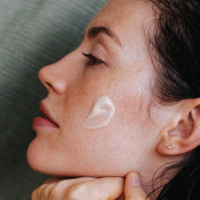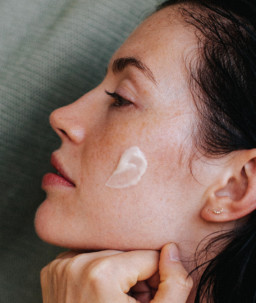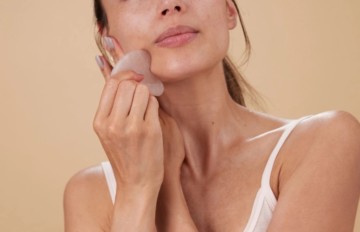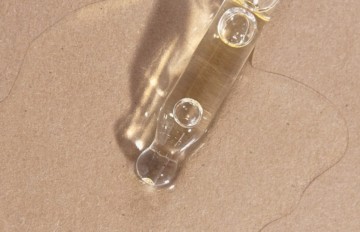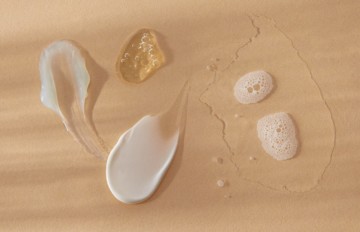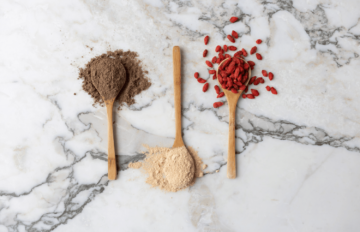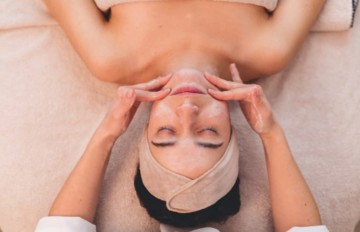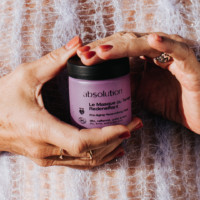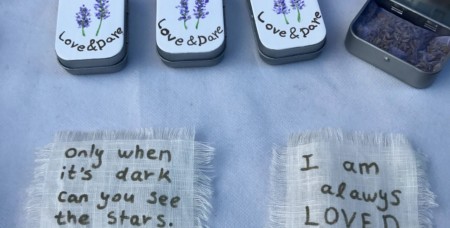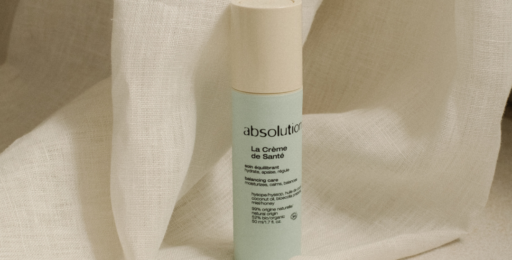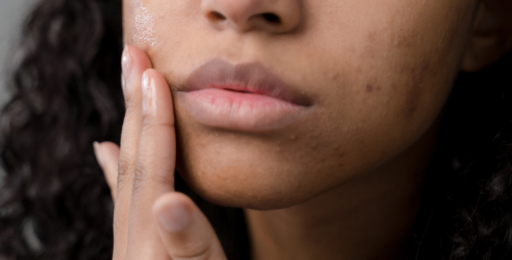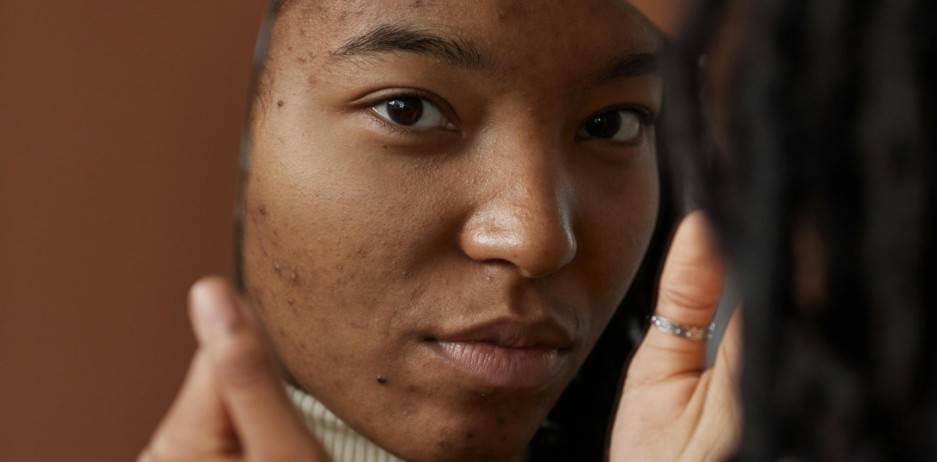
Using a micellar water to cleanse and soothe acne-prone, problem skin
Acne isn’t just something you get in your teens. It can happen at any age. In fact, 12% of women and 3% of men aged 25 to 581 are still affected by acne. Blackheads, pimples, redness and inflammation are certainly not great for your skin – or your confidence!
The good news is that Absolution’s micellar water provides a gentle solution to cleanse the face, with a soothing formula that comforts suffering skin. This is the best kind of micellar water for acne. As you sweep it over your tired face, it feels like the softest caress, gently removing impurities and wiping worries away, leaving your skin feeling fresh and balanced.
But is micellar water good for acne? Absolution has the answer.
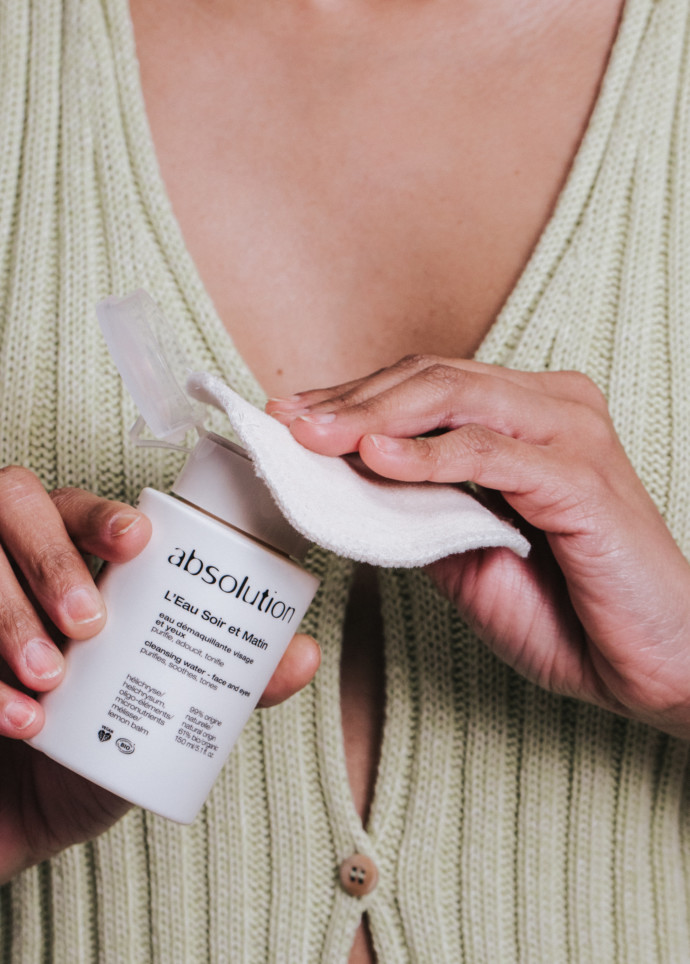
What is micellar water?
Micellar water is a cleansing solution made up of micelles – tiny molecules that effectively attract and trap impurities, sebum and makeup. It’s ideal for sensitive and acne-prone skin, thanks to a gentle formulation that cleanses the surface of the skin without drying it out or causing irritation. It won’t upset the skin’s natural balance, and leaves it feeling fresh and clean.
Can micellar water help to reduce acne?
Yes! A micellar water can help to manage acne by deeply cleansing and purifying the skin without any drying effect. It gets rid of excess sebum, impurities and bacteria that build up over the day and can clog pores, making acne worse. When used regularly, it helps to prevent new breakouts by keeping skin clean and balanced.
Good to know: what is acne?
Acne is an inflammatory skin condition characterized by excess sebum production and clogged pores, and is often aggravated by the growth of the Propionibacterium acnes bacteria. It tends to occur in adolescence, but can also persist in adulthood, and mostly affects the face, back and chest. Symptoms include blackheads, whiteheads, papules (small red bumps), pustules (raised bumps filled with pus), and sometimes even nodules (hard lumps that form under the skin) and cysts.
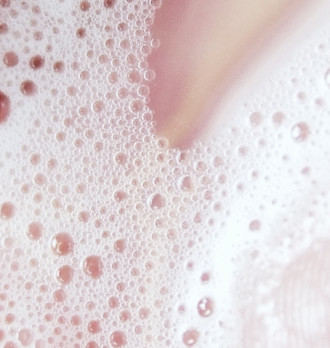
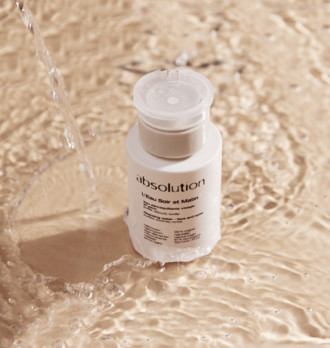
Are there any specific ingredients that should be avoided in a micellar water for acne?
If you’re looking for a micellar water for acne, always make sure you avoid products that contain skin-irritating alcohols, synthetic fragrances, and harsh preservatives – all of which could trigger or aggravate breakouts.
Instead, opt for formulas with soothing, non-comedogenic, skin-friendly ingredients that support your skin’s health and won’t clog pores. This is exactly the kind of formula Absolution created with its L’Eau Soir et Matin.
How often should I use a micellar water to treat acne?
To effectively treat acne, it’s recommended that you use a micellar water twice a day – morning and evening. It refreshes and purifies the skin. Plus, in the morning, it gets rid of excess sebum while removing the need for a cleanser, which could disrupt your skin’s balance.
Can you use micellar water as your sole cleansing product when you have acne?
While micellar water can be very effective at removing surface impurities and makeup, it shouldn’t be the only cleansing product used to treat acne, especially if you have combination, oily, or blemish-prone skin.
For deeper cleansing action, try Absolution’s Le Nettoyant Pureté, enriched with Chamomile and White Willow. Despite being very gentle, it’s highly effective, and is ideal for anyone whose skin is prone to blemishes.
To complement your cleansing products, it’s also worth using a face mask occasionally. Le Masque Pureté Détoxifiant, which contains Myrtle, Burdock, Aloe Vera and White Clay, deeply cleanses and purifies, tightens pores, and helps to control sebum production in oily and blemish-prone skin.
These products work together to cleanse, detoxify, and soothe acne-prone and oily skin, while maintaining the skin’s natural balance.
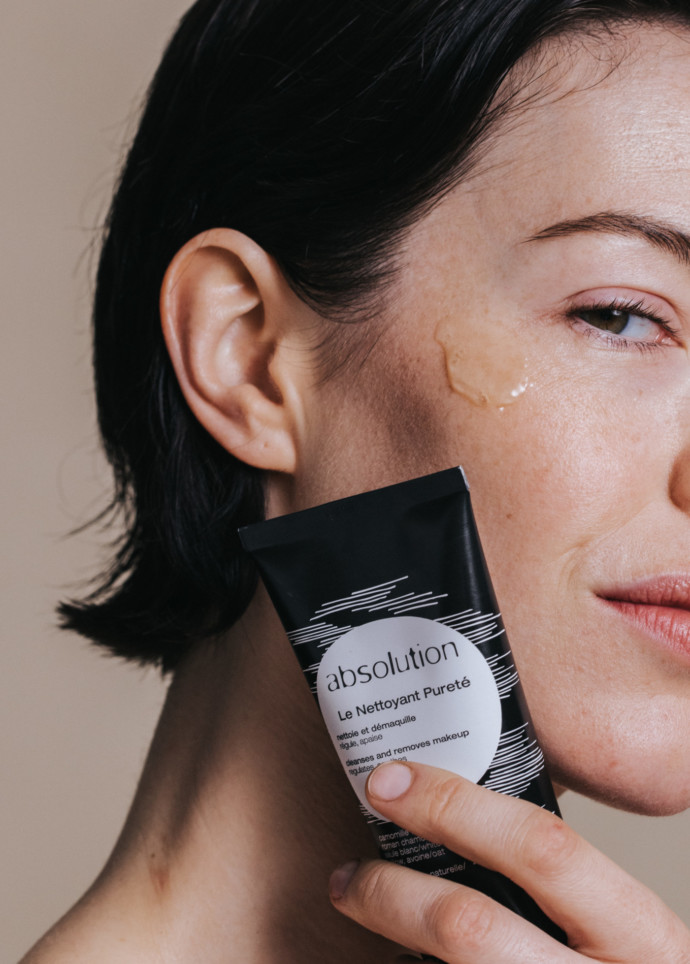
What is the difference between micellar water and other topical treatments for acne?
Unlike products that specifically target blemishes with high concentrations of natural active ingredients such as Propolis, Tepescohuite or Arrabidaea Chica (Crajiru), a micellar water takes a less direct approach. Its aim is to cleanse and soothe the skin, rather than actively treat breakouts. This makes it ideal for daily use, alongside other products for acne-prone skin.
See all our cleansers and makeup removers.
How should micellar water be incorporated into a skincare routine for acne-prone skin?
Use a micellar water as the first step in your cleansing routine, to remove makeup and impurities. Follow with a specific acne cleanser for deeper cleansing. This will prepare your skin, so it can better absorb moisturizing products without pores being clogged. If you’re looking for skincare products that are designed to soothe skin inflammation and restore calm, we highly recommend our certified-organic skin-soothing oil, PAX. Formulated with CBD and natural extracts, it works to soothe, regulate and regenerate blemish-prone skin.
See all our face care products.
3 points to remember:
- Micellar water effectively cleanses without being harsh on the skin, removing sebum and impurities.
- For a complete cleansing routine, combine micellar water with specific cleansers and detoxifying masks that are suitable for acne-prone skin.
- Give priority to micellar waters formulated with natural and organic active ingredients.
